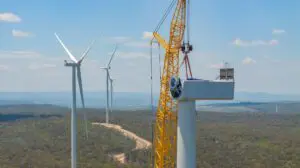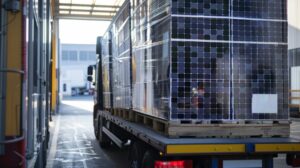A leading academic body representing scientists, engineers and technology researchers has called on the Morrison government to do more to reduce emissions, after publishing an analysis showing Australia is not on track to meet its Paris Agreement targets.
A new analysis published by the Academy of Technology and Engineering, which represents almost a thousand leading Australian scientists and engineers, has detailed how Australia will miss its international commitments to reduce emissions.
The analysis prepared by the expert body details how the Australian government is banking on credits achieved through soft targets and early action taken in the 1990s to short cut its way to its 2030 emissions reduction target.
“To use a mortgage analogy, this is a bit like taking out a mortgage for $1 million, paying it off faster than required to reduce it to $750,000, and then redrawing another $250,000 to pay for renovations; but only expecting to continue paying off the $750,000,” the ATSE report says.
“Most countries oppose the use of carry-over credits because they do not contribute to real reductions in emissions in the Paris commitment period.”
President of the Academy of Technology and Engineering (ATSE), professor Hugh Bradlow, said that the academy had analysed Australia’s emissions trajectory and that while Australia had technically met its Kyoto Protocol targets, it was off-track to meet future targets under the Paris Agreement.
“We have carefully interrogated the data and found that not only has Australia met our Kyoto targets, we have exceeded them,” professor Bradlow said.
“However, we project that Australia is not currently on track to meet its commitments under the Paris agreement, which is supported by recent evidence from the Climate Change Authority’s report Prospering in a Low Emissions World.”
Federal energy and emissions reduction minister Angus Taylor conceded last week that it was the preferred Coalition’s strategy to set easy emissions reduction targets, that it knew it would achieve, and that the thought committing to more ambitious cuts to greenhouse gas emissions was “not necessarily good policy“.
The ATSE said that the Morrison government’s plans to try and use surplus Kyoto era permits towards meeting its 2030 Paris Agreement targets ran contrary to the whole purpose of the international agreement to reduce emissions.
“We do not support treating our Kyoto gains as ‘credits’ towards our Paris commitments because that runs contrary to the objective of reducing the actual emissions that accumulate in the atmosphere in the period 2021 – 2030,” professor Bradlow added.
The ATSE said that the government’s own projections showed that it was not on track to meet its 26 to 28 per cent emissions reduction target by 2030 and that Australia’s greenhouse gas emissions were expected to remain virtually unchanged through to 2030.
 “We must focus our efforts on adopting technologies that would enable Australia to transition to low-emissions energy production. Australia is in a strong position to lead and benefit from investment in research and development to drive the transition of our energy-intensive industries with sustainable low-emissions technologies.”
“We must focus our efforts on adopting technologies that would enable Australia to transition to low-emissions energy production. Australia is in a strong position to lead and benefit from investment in research and development to drive the transition of our energy-intensive industries with sustainable low-emissions technologies.”
The ATSE hoped that by publishing the analysis of Australia’s emissions targets, it could spur more ambitious commitments to reduce emissions, particularly in light of the direct threat that climate change poses to Australia.
“The 2019/2020 bushfire season clearly demonstrated the impacts of climate change in Australia and it is imperative that as a nation we demonstrate leadership to meet our commitments, yet do so without incurring economic strife,” professor Bradlow said.
“This is not to say that Australia alone must solve the climate issue. Climate change is a global problem and it is for the international community to solve it, but Australia must be a leader to maintain its position as a leading OECD economy.”
Australia has copped severe international criticism for plans to use “surplus” emissions reductions from earlier international treaties to meet its Paris Agreement target.
Other countries opposed Australia’s plans, and international negotiations held in Madrid late last year were pushed massively overtime as Australia refused to give ground.
Countries ultimately left the issue unresolved and will revisit Australia’s plans at the next round of talks, to be held in Glasgow in late 2021, after the talks were delayed by a year following Covid-19 global disruptions.
RenewEconomy and its sister sites One Step Off The Grid and The Driven will continue to publish throughout the Covid-19 crisis, posting good news about technology and project development, and holding government, regulators and business to account. But as the conference market evaporates, and some advertisers pull in their budgets, readers can help by making a voluntary donation here to help ensure we can continue to offer the service free of charge and to as wide an audience as possible. Thank you for your support.








